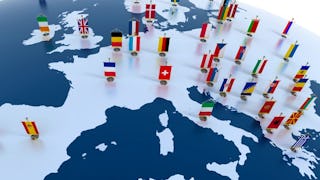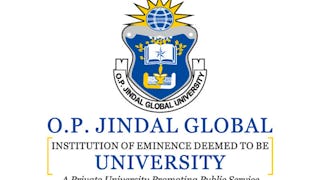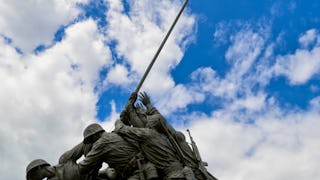Bienvenue dans le cours sur la puissance et la politique étrangère dans les relations internationales ! Ce cours vous familiarise avec l'importance de la puissance dans la conduite des relations internationales et la manière dont elle affecte les stratégies et les tactiques d'un État-nation dans ses relations avec d'autres États-nations. Il démontre le lien entre le rang d'un pays dans le système international et les moyens et méthodes qu'il adopte pour traiter avec le reste du monde. Le cours commence par l'introduction de quelques concepts sur ce qui constitue la puissance dans les affaires mondiales, comment elle est calculée et comment la configuration de la puissance internationale évolue au fil du temps. Vous apprendrez également ce que signifie la politique étrangère et quels sont ses éléments constitutifs, ses stratégies ou ses activités. Ensuite, le cours se penche plus en profondeur sur des études de cas de grandes puissances, de puissances moyennes et de petites puissances contemporaines. Ces études de cas empiriques amélioreront les connaissances générales des étudiants sur les développements et les tendances actuels en matière de relations étrangères dans différentes régions du monde. Les exemples d'approches et de décisions de politique étrangère des États-nations, basés sur les événements récents de l'actualité mondiale, aideront les étudiants à comprendre l'essence de la politique mondiale telle qu'elle est pratiquée aujourd'hui et les prépareront à anticiper les ordres internationaux à venir.

Profitez d'une croissance illimitée avec un an de Coursera Plus pour 199 $ (régulièrement 399 $). Économisez maintenant.

Pouvoir et politique étrangère dans les relations internationales

Instructeur : Sreeram Sundar Chaulia
20 772 déjà inscrits
Inclus avec
(329 avis)
Expérience recommandée
Ce que vous apprendrez
Déduire les raisons pour lesquelles un État-nation donné se comporte d'une certaine manière dans le monde.
Expliquez comment la force et la faiblesse relatives créent des opportunités et des contraintes dans l'élaboration de la politique étrangère.
Analyser les causes des changements de pouvoir et de l'évolution de l'ordre international au fil du temps.
Compétences que vous acquerrez
- Catégorie : Économie
- Catégorie : Histoire du monde
- Catégorie : Relations internationales
- Catégorie : Sciences politiques
- Catégorie : Politiques publiques
- Catégorie : Diplomatie
- Catégorie : Stratégie de sécurité
- Catégorie : Études de cas
- Catégorie : Analyse politique
- Catégorie : Gouvernance
Détails à connaître

Ajouter à votre profil LinkedIn
Découvrez comment les employés des entreprises prestigieuses maîtrisent des compétences recherchées

Il y a 7 modules dans ce cours
Bienvenue dans le cours sur la puissance et la politique étrangère dans les relations internationales !ce cours vous familiarise avec l'importance de la puissance dans la conduite des relations internationales et la manière dont elle affecte les stratégies et les tactiques d'un État-nation dans ses relations avec d'autres États-nations.il démontre le lien entre le rang d'un pays dans le système international et les moyens et méthodes qu'il adopte pour traiter avec le reste du monde.le cours commence par l'introduction de quelques concepts sur ce qui constitue la puissance dans les affaires mondiales, comment elle est calculée et comment la configuration de la puissance internationale évolue au fil du temps. Vous apprendrez également ce que signifie la politique étrangère et quels sont ses éléments constitutifs, ses stratégies ou ses activités. ensuite, le cours se penche sur des études de cas de grandes puissances, de puissances moyennes et de petites puissances contemporaines. Ces études de cas empiriques amélioreront les connaissances générales des étudiants sur les développements et les tendances actuels en matière de relations étrangères dans différentes régions du monde. Les exemples d'approches et de décisions de politique étrangère des États-nations, basés sur les événements récents de l'actualité mondiale, aideront les étudiants à comprendre l'essence de la politique mondiale telle qu'elle est pratiquée aujourd'hui et les prépareront à anticiper les ordres internationaux à venir.
Inclus
2 vidéos1 lecture
Dans ce module, vous apprendrez ce que signifie la puissance dans les relations internationales et comment elle est mesurée en termes d'attributs spécifiques d'un État-nation. Vous découvrirez également des concepts fondamentaux tels que la configuration du pouvoir international et l'ordre international, ainsi que le rôle des unités (États-nations et acteurs non étatiques) dans ces structures. Le module analyse également ce que signifie la politique étrangère, comment elle est formulée sur la base des intérêts nationaux, pourquoi un État-nation adopte un type particulier de politique étrangère et comment tout cela est inextricablement lié à sa position de puissance dans le système international. À la fin de ce module, vous comprendrez pourquoi une grande puissance a un comportement différent de celui d'une puissance moyenne ou d'une petite puissance.
Inclus
10 vidéos4 lectures1 devoir1 sujet de discussion
Dans ce module, vous vous appuierez sur la sensibilisation antérieure à la puissance et au comportement en matière de politique étrangère. Vous examinerez de près le comportement des États-Unis, qui ont été une grande puissance clé depuis la fin de la Seconde Guerre mondiale, et la manière dont ils ont façonné le système international de l'après-Seconde Guerre mondiale par le biais d'une variété de stratégies et de moyens. Vous comprendrez également comment les politiques des États-Unis ont évolué parallèlement aux changements dans la configuration de la puissance internationale, de l'ère de la bipolarité de la guerre froide à la période unipolaire d'après 1991, puis de nouveau de la bipolarité à l'ordre mondial multipolaire émergent d'aujourd'hui. À la fin de ce module, vous serez en mesure d'apprécier la manière dont les États-Unis ont traité avec les autres grandes puissances et les puissances plus faibles, ainsi que le type de grande stratégie qui a motivé les États-Unis depuis 1945.
Inclus
10 vidéos3 lectures1 devoir1 sujet de discussion
Dans ce module, vous découvrirez des concepts tels que le pouvoir et la politique étrangère dans le contexte d'une puissance moyenne émergente, l'Inde, dont on estime qu'elle a le potentiel de devenir une grande puissance. Vous apprendrez également comment l'ascension de l'Inde au cours des deux dernières décennies est étroitement liée à sa forte croissance économique, à ses alignements multilatéraux internationaux et à ses partenariats stratégiques, ainsi qu'à la vision de ses dirigeants politiques d'atteindre le statut de puissance de premier plan dans le monde. Ce module vous fera suivre le parcours de l'Inde, qui est passée du statut de puissance sous-régionale en Asie du Sud à celui de puissance régionale asiatique et de puissance d'équilibre importante à l'heure actuelle dans la région indo-pacifique au sens large. Enfin, vous aurez un aperçu des facteurs qui poussent l'Inde à s'élever dans la configuration des puissances internationales et des obstacles politiques internes à son ascension.
Inclus
10 vidéos3 lectures1 devoir1 sujet de discussion
Dans ce module, vous découvrirez la petite monarchie du Golfe Persique, le Qatar, qui a adopté une politique étrangère mêlant alliance avec les États-Unis et poursuite d'une forme indépendante et ambitieuse d'affirmation de soi vis-à-vis de ses concurrents régionaux. Le module aborde la montée en puissance du Qatar en tant que colosse des combustibles fossiles et la manière dont il a tiré parti de l'abondance de ses ressources naturelles pour s'imposer au Moyen-Orient et dans les institutions mondiales de l'énergie. Vous apprendrez également pourquoi le Qatar a adopté une politique de soutien aux groupes politiques islamistes dans la région et au-delà, et comment il a tiré parti de son statut de petite puissance pour devenir un modérateur et un médiateur dans de multiples zones de conflit armé. Enfin, le module explique également comment la survie du régime est un moteur essentiel de la politique étrangère de ce pays autoritaire.
Inclus
10 vidéos3 lectures1 devoir1 sujet de discussion
Ce module décrit les objectifs d'apprentissage, l'exposé du projet, les critères d'évaluation et les instructions de soumission pour le devoir individuel d'évaluation par les pairs dans le cadre du cours.
Inclus
1 évaluation par les pairs
Inclus
1 vidéo
Préparer un diplôme
Le fait de suivre ce cours proposé par O.P. Jindal Global University vous donnera un aperçu des enseignants ainsi que des sujets et contenus dans un programme diplômant connexe, ce qui peut vous aider à déterminer si le sujet ou l’université vous convient.
Instructeur

Offert par
En savoir plus sur Gouvernance et société
 Statut : Prévisualisation
Statut : PrévisualisationO.P. Jindal Global University
 Statut : Prévisualisation
Statut : PrévisualisationUniversità di Napoli Federico II
 Statut : Prévisualisation
Statut : PrévisualisationO.P. Jindal Global University
 Statut : Essai gratuit
Statut : Essai gratuitO.P. Jindal Global University
Pour quelles raisons les étudiants sur Coursera nous choisissent-ils pour leur carrière ?




Avis des étudiants
329 avis
- 5 stars
76,89 %
- 4 stars
17,02 %
- 3 stars
3,95 %
- 2 stars
1,21 %
- 1 star
0,91 %
Affichage de 3 sur 329
Révisé le 21 févr. 2023
Excellent course to enhance understanding of world geopolitics.
Révisé le 27 oct. 2024
The course highlighted the ways power is influential on the world stage, and is especially insightful when it comes to small powers.
Révisé le 16 nov. 2023
Perfect for anyone who wants an introduction to International Relations or for anyone who wants an essential bibliography.
Foire Aux Questions
Ce cours s'intègre au cours Foreign Policy of Great, Middle and Small Powers (Politique étrangère des grandes, moyennes et petites puissances) du Master of Arts International Relations, Security and Strategy (MA IRSS) et couvre quatre semaines de matière enseignée dans le cours. Pour accéder au Master en relations internationales, sécurité et stratégie, cliquez ici.
Pour accéder aux supports de cours, aux devoirs et pour obtenir un certificat, vous devez acheter l'expérience de certificat lorsque vous vous inscrivez à un cours. Vous pouvez essayer un essai gratuit ou demander une aide financière. Le cours peut proposer l'option "Cours complet, pas de certificat". Cette option vous permet de consulter tous les supports de cours, de soumettre les évaluations requises et d'obtenir une note finale. Cela signifie également que vous ne pourrez pas acheter un certificat d'expérience.
Lorsque vous achetez un certificat, vous avez accès à tous les supports de cours, y compris les devoirs notés. Une fois le cours terminé, votre certificat électronique sera ajouté à votre page de réalisations - à partir de là, vous pouvez imprimer votre certificat ou l'ajouter à votre profil LinkedIn.
Plus de questions
Aide financière disponible,
¹ Certains travaux de ce cours sont notés par l'IA. Pour ces travaux, vos Données internes seront utilisées conformément à Notification de confidentialité de Coursera.





